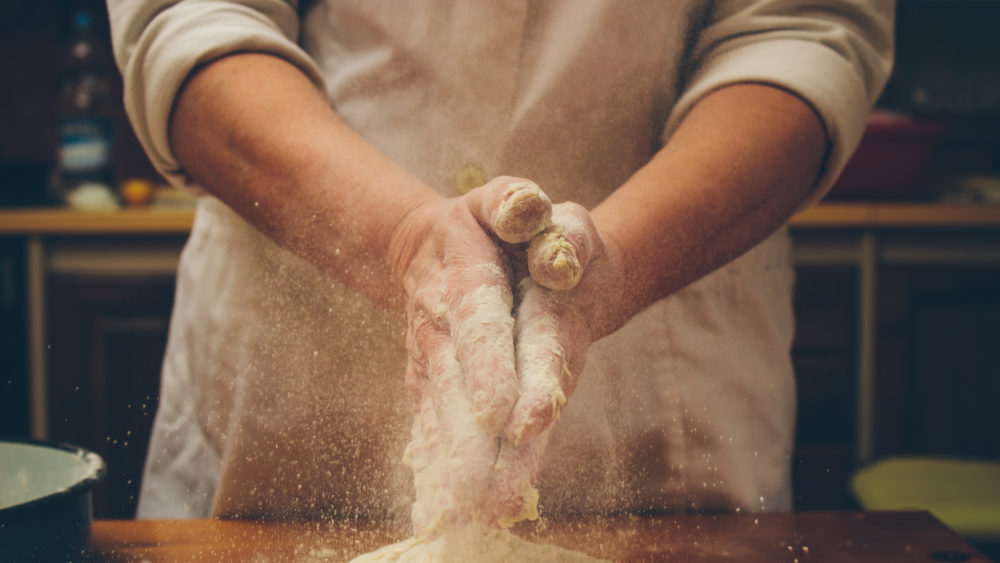It’s been a year since lockdown was first announced in the UK in order to slow the spread of Covid-19. While restrictions have varied over the last 12 months, they have significantly affected daily life. If you’ve been feeling stressed or anxious recently, you’re not alone, and a new hobby to focus on could relieve some of the pressure.
More than two-thirds of adults in the UK report feeling somewhat or very worried about the effect Covid-19 is having on their life, according to the Health Foundation. The most common issues affecting wellbeing are:
- Worry about the future (63%)
- Feeling stressed or anxious (56%)
- Feeling bored (49%).
While the future is uncertain, finding something you enjoy doing can help ease stress. If you’re looking for a new hobby to fill your days, these five are worth considering.
1. Baking
During the first lockdown, baking became something of a trend. Social media was filled with banana bread and “baking fails”. A YouGov poll found that 53% of Brits took up baking between March and May last year, with a third getting through two or more bags of flour in just a few months.
Whether you want to bake a stunning cake or try your hand at making bread from scratch, baking can be a great way to de-stress. Using your hands to make something can help you focus on the moment, rather than what’s worrying you. It’s a great activity to share with a partner or children, plus, of course, you get to enjoy eating your creation once it’s done!
2. Walking
If your exercise habits have suffered during lockdown or you want to increase your activity levels, going for a walk is an excellent option for relieving stress. A third of Brits have said that going out for walks are helping them cope with lockdown restrictions. Six in ten also said they notice a positive uplift in their mood on days they’ve spent time in nature. So, why not pull on your hiking boots, wrap up warm, and head on out for a walk around your area?
Heading away from your local area for a hike in nature isn’t possible for everyone right now, but the current situation presents an opportunity to explore your local area in more depth. Opt for green spaces where possible – getting back to nature has been found to improve mental wellbeing and anxiety.
3. Mindful colouring
A few years ago, mindful colouring books seemed to be everywhere, but they really can help you reduce stress. Mindfulness is the practice of focusing on what you’re doing in the moment. Colouring intricate patterns or pictures carefully can help you do this. It’s a form of meditation that can help you to relax.
Colouring is a great option if you want to take some time away from technology. There are plenty of options to choose from as well, from pages that will take just a few minutes to those that you can spend hours on. If you’re feeling creative, then painting, drawing or other art activities can have the same benefits.
4. Gardening
Spring is arriving and it’s the perfect time to make plans to improve your garden. Working with your hands and seeing the fruits of your labour (literally) can be hugely satisfying, as well as getting you outdoors and enjoying the fresh air.
Research conducted by the University of Exeter and the Royal Horticultural Society charity found that people who spend time in the garden are significantly more likely to report general good health, higher psychological wellbeing, and greater physical activity levels than those that don’t. With summer around the corner and some social-distancing restrictions likely to remain in place, investing in your garden now could help you create an outdoor space to enjoy in the coming months.
5. Puzzle solving
Much like mindful colouring, solving puzzles can help you focus on one thing and mentally put to one side other things that you may be finding stressful. Puzzles are an excellent way to keep your mind active when you’re forced to spend more time indoors. From crosswords in the newspaper to an “escape room in a box” that the whole family can be part of, there are plenty of options to find something that you enjoy.
As well as helping you beat lockdown boredom, puzzle solving can improve other areas too, including your memory, attention to detail, and collaboration with others.


